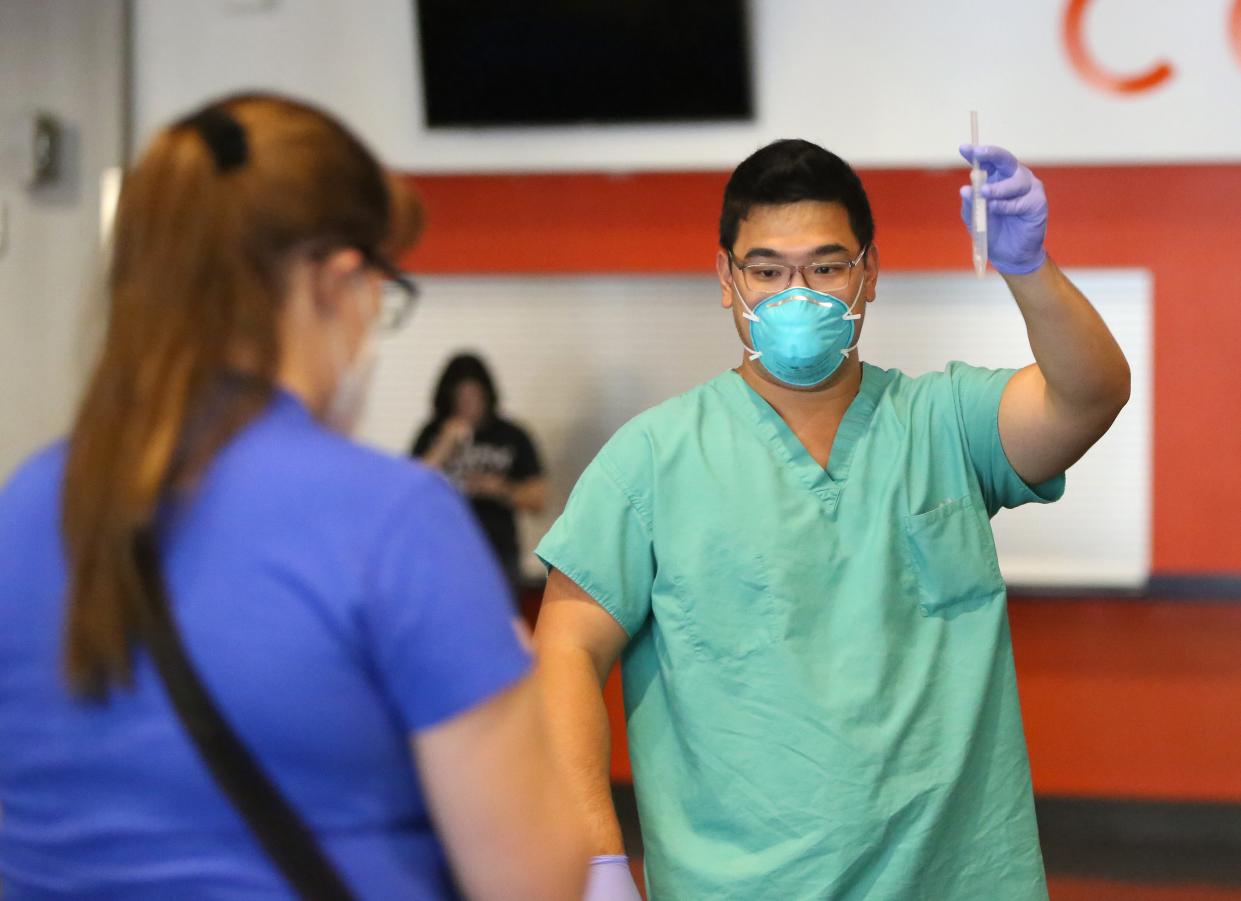Removal of UF's COVID dashboard creates serious problems

On Dec. 17, the University of Florida’s Emerging Pathogens Institute issued model projections for Florida’s next wave of the pandemic, which is expected to climb exponentially through January and early February and peak at higher case levels than any previous wave. The model was created by UF experts in biology, medicine and public health.
On Dec. 31, UF removed its own COVID-19 dashboard. Although the testing center was resurrected after classes began, the campus community is now being referred to the Florida Department of Health for information on COVID cases. Although reporting the number of COVID cases are fraught with many potential sources of error, removing a university-based local COVID data source creates serious problems.
First, a local COVD-19 dashboard provides critical information about what is happening locally, particularly in an area to which thousands of students and visitors come from around the state and nation. Even imperfect numbers correlate with and are affected by state and national trends.
Removing the dashboard gives the impression that the rise of COVID infections is occurring somewhere else, not something that affects us here in Gainesville and on campus. Reporting the case numbers and the number of people quarantining encourages people to take action locally: getting tested, wearing masks and quarantine themselves if they have been exposed.
Second, there has been no clear explanation of why the site was taken down. UF administrators simply said that it is “no longer needed,” but they have provided no justification for its removal.
The lack of transparency raises legitimate concern over its motivation and possible actors operating behind the scene. Given UF’s recent history of succumbing to political pressure in multiple aspects of university policy, this appears as yet another case of allowing political considerations to govern decisions that should be instead be based on scientific evidence and that serve community rather than political interests.
Third, there has been much concern about the accuracy and timeliness of the now-weekly Florida Department of Health COVID data. As a public research institution with strong public health and epidemiological research capacity, UF has a mission to provide accurate public health information and an obligation to set an example of accuracy and reliability, especially when other institutions fail to do so.
Further, DOH data is not broken down by county and, as a result, it provides no basis to know what is happening locally. The state site also fails to report positivity rates, i.e., the percentage of positive cases relative to the number of people tested, which is an important metric to assess infection trends.
Given the above, how are students, staff and faculty going to make informed decisions? How careful do we need to be? It is a shame that the state is tying the hands of teachers and administrators about what they can do. In a more rational world, we could implement masking and vaccination requirements … but alas, we are left to fend for ourselves during the biggest surge yet.
Gainesville welcomed back 35,000 students from all over the state and nation. Inevitably, this is pushing a surge in community transmission, and possible subsequent hospitalizations and deaths. How large that surge is, and whether our local health care systems become overwhelmed again and we see another round of delayed procedures and rationed emergency care, depends on us.
UF is the largest driver of Gainesville’s local economy, but with students and alumni, athletics and entertainment comes COVID. The newest variant is far more contagious than previous variants, and early reports suggest it may not respond well to most of our monoclonal antibody treatments. Even if a lower percentage of cases end up hospitalized, record caseloads could mean more preventable disability and death, both from COVID and from other emergencies, as exhausted health care workers struggle to manage yet another overload.
UF must and will play a central role in mitigating the health impacts of this surge. UF should maintain the on-campus testing and reporting programs, allowing students and employees quick and easy access to both testing and data, so that members of the campus population can make responsible choices, isolate as needed and reduce the impacts of this wave.
Mark Hostetler, Paul Ortiz, Stan Kaye and Abe Goldman live in Gainesville.
Join the conversation
Send a letter to the editor (up to 200 words) to letters@gainesville.com. Letters must include the writer's full name and city of residence. Additional guidelines for submitting letters and longer guest columns can be found at bit.ly/sunopinionguidelines.
Journalism matters. Your support matters.
Get a digital subscription to the Gainesville Sun. Includes must-see content on Gainesville.com and Gatorsports.com, breaking news and updates on all your devices, and access to the Gainesville.com ePaper. Visit www.gainesville.com/subscribenow to sign up.
This article originally appeared on The Gainesville Sun: Hostetler, Ortiz, Kaye and Goldman: UF not reporting COVID cases

